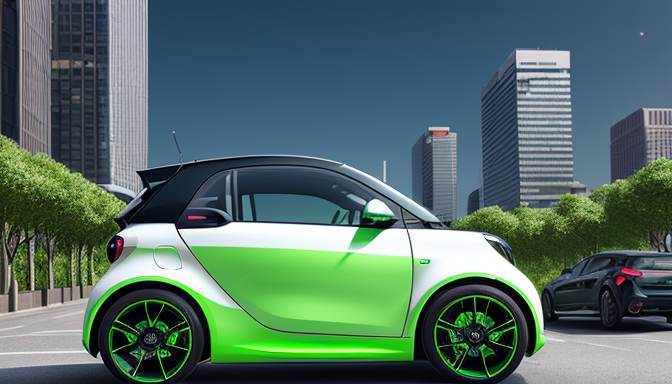The world of transportation is evolving at lightning speed, and at the forefront of this revolution are smart cars. These vehicles, equipped with advanced technologies, are not just about getting from point A to point B anymore. They are transforming our driving experience into something more intuitive and connected. Imagine a car that can anticipate your needs, adjust your route based on real-time traffic data, and even park itself! Sounds like something out of a sci-fi movie, right? But it’s happening right now.
At the heart of these remarkable machines lies a combination of AI driving systems, sophisticated sensors, and seamless connectivity. These elements work together to create a driving experience that is not only safer but also more enjoyable. For instance, AI algorithms can analyze driving patterns and optimize fuel efficiency, while sensors detect obstacles and help prevent accidents. It’s like having a co-pilot who is always alert and ready to assist!
But what does the future hold for smart cars? As urban areas become more crowded and environmental concerns grow, these vehicles could play a crucial role in redefining transportation. Picture a city where traffic jams are a thing of the past, thanks to smart traffic management systems that communicate with smart cars. This could lead to reduced emissions and a cleaner planet. Are you ready to embrace this change? The journey has just begun, and the possibilities are endless!
Understanding Smart Car Technology
In today’s fast-paced world, smart car technology is revolutionizing the way we think about driving. Imagine a vehicle that not only takes you from point A to point B but also learns your preferences, adapts to your driving style, and keeps you safe on the road. This is not science fiction; it’s the reality of modern automotive engineering, powered by artificial intelligence (AI), advanced sensors, and seamless connectivity.
At the heart of smart cars lies a sophisticated network of technologies that work in harmony to enhance your driving experience. For instance, AI-driven systems analyze real-time data from various sensors, allowing the car to make split-second decisions. These systems can detect obstacles, assess traffic conditions, and even predict potential hazards, making driving not just easier but significantly safer.
Smart features such as adaptive cruise control, lane-keeping assistance, and automated parking are becoming standard in many models. These innovations not only reduce the stress of driving but also open up a world of possibilities for the future. Picture a day when cars communicate with each other to prevent collisions or optimize traffic flow. The potential is staggering!
Moreover, the integration of connectivity means that your car can be a part of the Internet of Things (IoT). This allows for features like remote diagnostics, over-the-air updates, and even the ability to control your car from your smartphone. As we embrace this technology, it’s clear that the way we drive—and live—will never be the same.

The Future of Transportation with Smart Cars
Imagine a world where your car not only drives itself but also communicates with other vehicles and infrastructure around it. Smart cars are not just a distant dream; they are rapidly becoming a reality, revolutionizing the way we think about transportation. With the integration of AI driving systems, these vehicles are capable of analyzing vast amounts of data in real-time, making split-second decisions that enhance safety and efficiency.
The impact of smart cars on urban planning is profound. As cities become more congested, the need for intelligent traffic management systems grows. Smart cars can reduce traffic jams by communicating with traffic lights and other vehicles, optimizing routes to save time and fuel. This connectivity leads to a more seamless travel experience, where delays become a thing of the past.
Moreover, the environmental implications are significant. By promoting the use of electric smart cars, we can reduce carbon emissions and contribute to a cleaner planet. As these vehicles become more mainstream, we can expect a decrease in air pollution, making our cities healthier places to live. In fact, studies suggest that widespread adoption of smart cars could lead to a 30% reduction in urban traffic emissions by 2030.
In conclusion, the future of transportation with smart cars is not just about convenience; it’s about creating a sustainable, efficient, and connected world. Are you ready to embrace this change? With the rapid advancements in technology, the answer will soon be clear!
Frequently Asked Questions
- What exactly is a smart car?
A smart car is a vehicle equipped with advanced technology, like AI and sensors, that enhances driving safety and experience. Think of it as your personal driving assistant, always ready to help you navigate the roads!
- How do smart cars improve safety?
Smart cars use various sensors and AI algorithms to monitor their surroundings, helping to prevent accidents. They can alert you to potential hazards, automatically apply brakes, or even take over driving in critical situations. It’s like having a co-pilot who never gets tired!
- Will smart cars change urban transportation?
Absolutely! Smart cars can optimize traffic flow and reduce congestion, making cities more livable. Imagine a world where traffic jams are a thing of the past, and you can get to your destination smoothly and quickly!
- Are smart cars environmentally friendly?
Yes, many smart cars are designed to be electric or hybrid, which helps reduce emissions. Plus, with better traffic management, they can lead to less fuel consumption. It’s a win-win for you and the planet!
- What challenges do smart cars face?
While they’re exciting, smart cars also face challenges like cybersecurity risks and the need for robust infrastructure. It’s a bit like building a new road; you need to ensure it’s safe and reliable before hitting the gas!